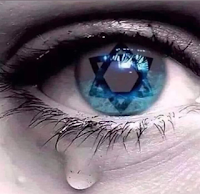|
Shemini Atzeret / Simchat Torah |
|
Day 1: Hamerkaz; Day 2: Various |
Anyone who knows me will know that I love the idea of shule (which is why I write this blog), but I don’t and have never liked Simchat Torah specifically. It is my least favourite festival, though as I have come to discover, this is the case for some other people too, though not necessarily for the same reasons. Nonetheless, Shemini Atzeret and Simchat Torah in particular have a special place in my heart because in 2020, after the first set of lockdowns – when shules were closed for Rosh Hashana and Yom Kippur – the first festival in which they were allowed to re-open was Simchat Torah. Not all shules did because of an abundance of caution and because gatherings were limited to just 10 people, but some took the plunge and did carefully open. One such shule was Hamerkaz, with the service conducted entirely outdoors and with a lot of social distancing.
This year I knew I wouldn’t be able to get to Hamerkaz for Simchat Torah, but for nostalgic reasons as one of those initial 10 congregants in 2020, I came back to Hamerkaz for Shemini Atzeret. The shule was full, but I suspect that is more so because of Yizkor, which is one of the defining features of Shemini Atzeret since it is a day that has no other specific features associated with it in the diaspora. The rabbi spoke passionately about the inheritance of the Torah and its purpose in our lives, as well as the memory of loved ones. Hamerkaz is one of the shules in town that attracts many Israelis, and though none could have foreseen what was to come in their homeland the following day, in retrospect as least, it was nice to be with Israelis and such a passionate, caring community.
I essentially don’t like Simchat Torah for three reasons: drunkenness, chaos and gender inequality. I have spoken and written about this in the past, but this year – for entirely external reasons – some of the things I don’t like about the festival were not part of it. As it happened, over the course of the evening and morning, I attended eight different shules, but just as the celebrations were beginning in Melbourne, a terrorist operation that has become a full-scale war, began in Israel. As such, though many of the usual practices of Simchat Torah were on full display, some of the celebrations were markedly muted. Most rabbis said that we still need to celebrate, but some of those celebrations were not as intense as may have otherwise been.
In a normal year, some people who would otherwise be too inebriated to legally drive, are entrusted with carrying the Torahs around the Bimah. The truth is that there is no Halachic source for drinking, even a little, though for some reason having a L’Chaim after being called to the Torah has been part of the day for centuries. I think that the drinking has in many ways corrupted the festival because people now associate joy with alcohol. When the name Simchat Torah was first adopted, it was about a celebration through learning not drinking, yet Hakafot in some places have become a synagogue-sanctioned form of anarchy, much more focussed on the Simcha than on the Torah.
Moreover, though the Torah itself says that not just men, but women as well should hear and learn from the Torah, in many orthodox shules, women often feel alienated from the practices of the day. Slowly even in orthodox circles things are changing, and I saw the Torah being passed to the women in a few places, but in some it was still very much a spectator sport with women looking down from the rafters. If I had my way, I would redefine and reinvigorate the day, but as much as I’d like to, I can’t change Simchat Torah, and despite everything, maybe just maybe, the frivolity, the chaos, the sexism, and even the drunkenness of Simchat Torah can be excused if the focus of the day is on the true meaning of Simcha – however that is interpreted. This year especially, with a continued tragedy unfolding in Israel, maybe joy, as experienced on this day or any other day, is the only thing that can really save us. I pray for a speedy end to the violence and for peace to finally prevail over Israel and the rest of the world.

Comments
Post a Comment